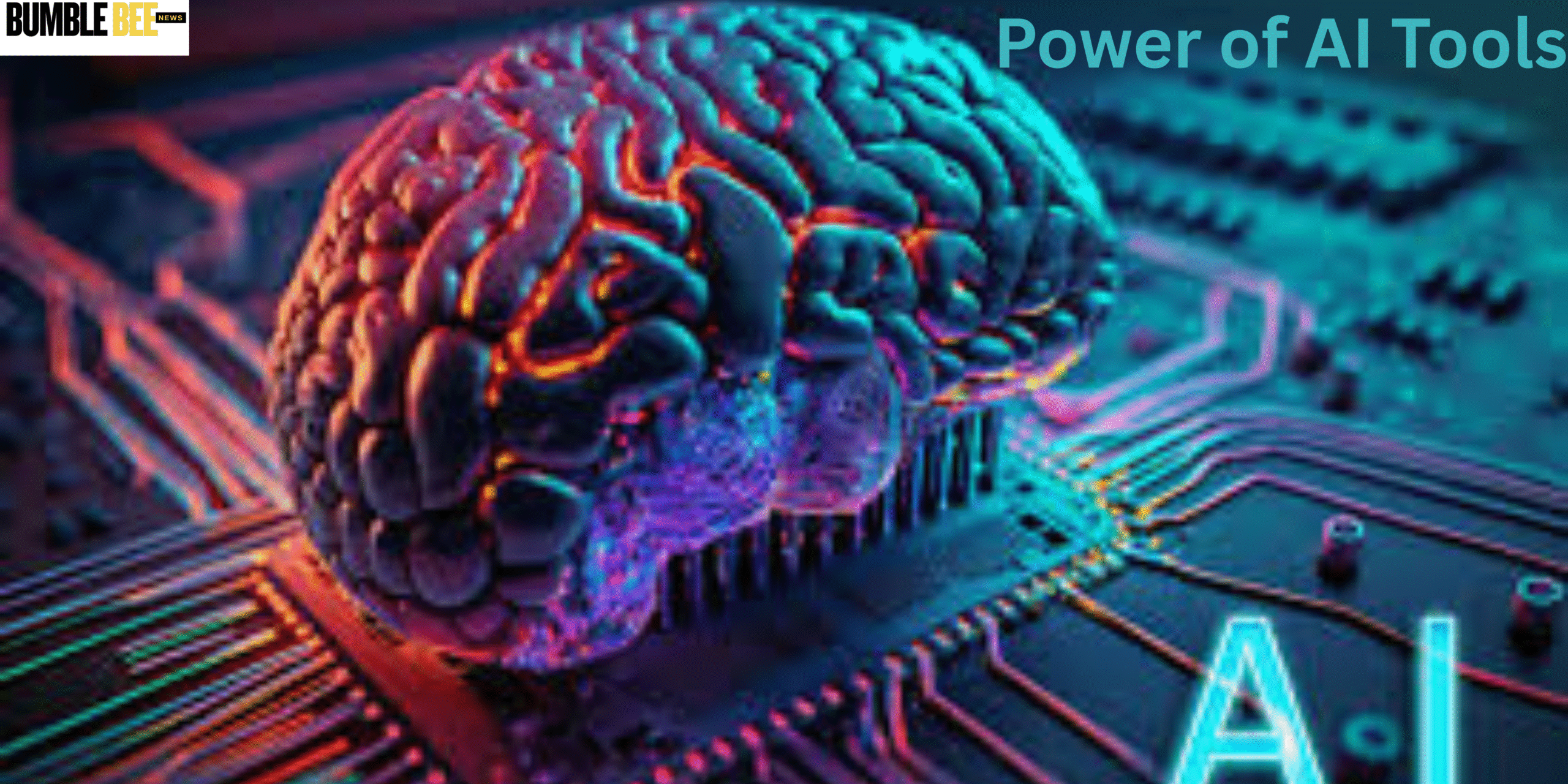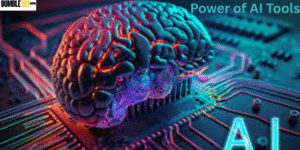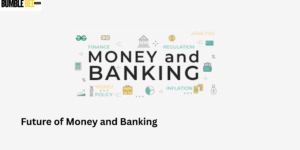
There was a time when Power of AI Tools sounded like something only seen in science fiction, robots taking over the world and supercomputers with emotions. Well, fast forward to today, and AI is no longer a futuristic fantasy. It’s here, it’s real, and it’s already woven into the fabric of our daily lives. From the recommendations on your Netflix feed to the smart assistants in your phone, AI is silently but powerfully changing how we live, work, and create.
AI isn’t just for tech giants or researchers anymore. A vast array of AI tools are now readily available, empowering everyday people and businesses, from freelancers to large corporations, to achieve more, faster, and smarter. These aren’t complex systems that require coding knowledge; they are user-friendly applications designed to supercharge your productivity, creativity, and decision-making.
At its core, AI allows machines to learn from data, understand patterns, and make decisions or perform tasks that would typically require human intelligence. AI tools bottle up this power into practical, accessible applications.
Table of Contents

Power of AI Tools
- Boosted Productivity:
AI tools can take over repetitive, time-consuming tasks, freeing up your valuable time for more strategic, creative, and engaging work.
- Enhanced Creativity:
Far from stifling creativity, AI can act as a powerful brainstorming partner, generating ideas, variations, and new perspectives you might not have considered.
- Improved Accuracy:
AI systems can process vast amounts of data with incredible precision, reducing human error in tasks like data entry, analysis, and content generation.
- Personalization at Scale:
AI can analyze individual preferences and behaviors to deliver highly customized experiences, from tailored product recommendations to personalized learning paths.
- Smarter Decision-Making:
By sifting through massive datasets, AI tools uncover hidden patterns and insights that humans would miss, helping you make more informed and strategic choices.

Where Are the Power of AI Tools Making a Real Difference?
AI tools are impacting virtually every sector. Here are some of the most exciting areas:
- Content Creation & Marketing:
The world of content is buzzing with AI. Whether you’re a blogger, marketer, student, or just someone who needs to write more effectively, AI tools are a massive help.
- Writing Assistants:
Tools like Jasper.ai, Writesonic, and even ChatGPT are transforming how we write. They can help you brainstorm blog post ideas, outline articles, draft social media captions, write email newsletters, or even generate marketing copy. They learn your preferred tone and style, ensuring your brand voice remains consistent. This doesn’t mean AI writes for you entirely, but it acts as an incredibly fast and intelligent co-pilot, helping you overcome writer’s block and speed up your workflow.
- Image & Video Generators:
Forget needing advanced graphic design skills. Tools like DALL-E, Midjourney, and Adobe Firefly allow you to create stunning, unique images from simple text descriptions (prompts). This is revolutionizing advertising, design, and digital art. Similarly, tools like Synthesia and HeyGen can create realistic AI-generated videos with avatars and voiceovers, perfect for presentations, e-learning, or marketing.
- Voice & Audio Production:
AI can now generate highly realistic voices from text (Murf.ai, ElevenLabs) or transcribe audio incredibly accurately (Otter.ai, Descript). This is a boon for podcasters, video creators, and anyone who needs to convert spoken words into text or vice versa.
- Business & Productivity:
Beyond creative tasks, AI tools are becoming central to everyday business operations and personal productivity.
- Customer Service:
AI-powered chatbots are now a common sight on websites. They can handle routine customer inquiries 24/7, answer FAQs, and guide users to the right information, freeing up human agents for more complex issues.
- Sales & Marketing Automation:
AI helps businesses understand customer preferences, predict market trends, and personalize advertising campaigns. Tools can automate lead qualification, suggest the next best action for sales reps, and even generate personalized email responses.
- Project Management & Collaboration:
AI can summarize long meeting notes, analyze project data to predict potential delays, and even optimize team schedules. Tools like Notion AI can instantly turn your notes into summaries, action items, or even full documents, while smart schedulers (e.g., Reclaim.ai) manage your calendar more efficiently.
- Data Analysis & Insights:
AI can sift through vast datasets far quicker than humans, identifying patterns and providing actionable insights for business decisions. This means better forecasting, optimized inventory, and a clearer understanding of market trends.
- Software Development:
Coding, once a highly specialized skill, is being augmented by AI tools.
- Coding Assistants:
Tools like GitHub Copilot and Tabnine act as AI pair programmers. They can suggest lines of code as you type, complete functions, identify bugs, and even generate entire blocks of code from plain English descriptions. This significantly speeds up development, reduces errors, and allows developers to focus on higher-level problem-solving.
- Debugging & Testing:
AI can help analyze code for potential vulnerabilities and automatically generate test cases, making software more robust and secure.

AI Tools in Everyday Life
While we often focus on business applications, AI tools are already subtly enhancing our personal lives in ways you might not even realize.
- Personal Finance Management:
AI-powered apps can analyze your spending habits, suggest budgeting strategies, and even identify opportunities to save or invest based on your unique financial patterns. They can flag unusual transactions or remind you about upcoming bills, helping you stay on top of your money without constant manual checks.
- Learning and Education:
From language learning apps that use AI to personalize your lessons and correct pronunciation, to platforms that adapt educational content to your learning style, AI tools are making education more accessible and effective. They can help students with research, summarize complex topics, or even provide personalized tutoring.
- Health and Wellness:
AI tools in wearables track your sleep, activity, and heart rate, offering personalized insights into your health. Apps can use AI to create customized workout plans or dietary suggestions, guiding you towards better well-being based on your data.
- Smart Home Integration:
Your smart speakers, thermostats, and lighting systems often leverage AI to learn your routines and preferences, automating tasks and making your home more comfortable and energy-efficient without you lifting a finger.

Using AI Tools Responsibly
While the benefits are immense, it’s crucial to acknowledge the ethical considerations that come with AI tools:
- Bias:
AI systems learn from the data they’re fed. If that data reflects existing human biases (e.g., historical biases in loan approvals), the AI can perpetuate or even amplify those biases. Developers and users must actively work to identify and mitigate such biases to ensure fairness. ● Privacy & Data Security:
AI tools often process large amounts of data, raising concerns about privacy. It’s essential to understand how your data is being used, ensure it’s securely protected, and comply with data protection regulations.
- Transparency:
Sometimes, it can be hard to understand how an AI tool arrived at a particular conclusion or generated specific content. Striving for greater transparency in AI’s decision-making processes is important for building trust.
- Job Evolution:
While AI tools enhance productivity, they will inevitably change job roles. The focus will shift from repetitive tasks to skills like critical thinking, prompt engineering, ethical oversight, and creativity – areas where humans still excel.
The Future is Collaborative:
As AI technology continues its rapid evolution, we can expect these tools to become even more intuitive, powerful, and seamlessly integrated into every aspect of our lives and work. They will personalize our experiences in ways we’re only just beginning to imagine, offer proactive insights that anticipate our needs, and continue to push the boundaries of what’s possible in human achievement.
Key to thriving in this AI-powered world is to embrace these tools
It’s not about being replaced, but about being empowered. We must commit to understanding their immense capabilities, acknowledging their limitations, and, crucially, learning to wield them responsibly.
By doing so, we can unlock unprecedented levels of efficiency, spark new waves of creativity, and achieve success beyond what we could have imagined just a few years ago. AI tools are here to stay, and by learning to collaborate with them, we’re building a smarter, more productive, and ultimately, more innovative future for everyone.








